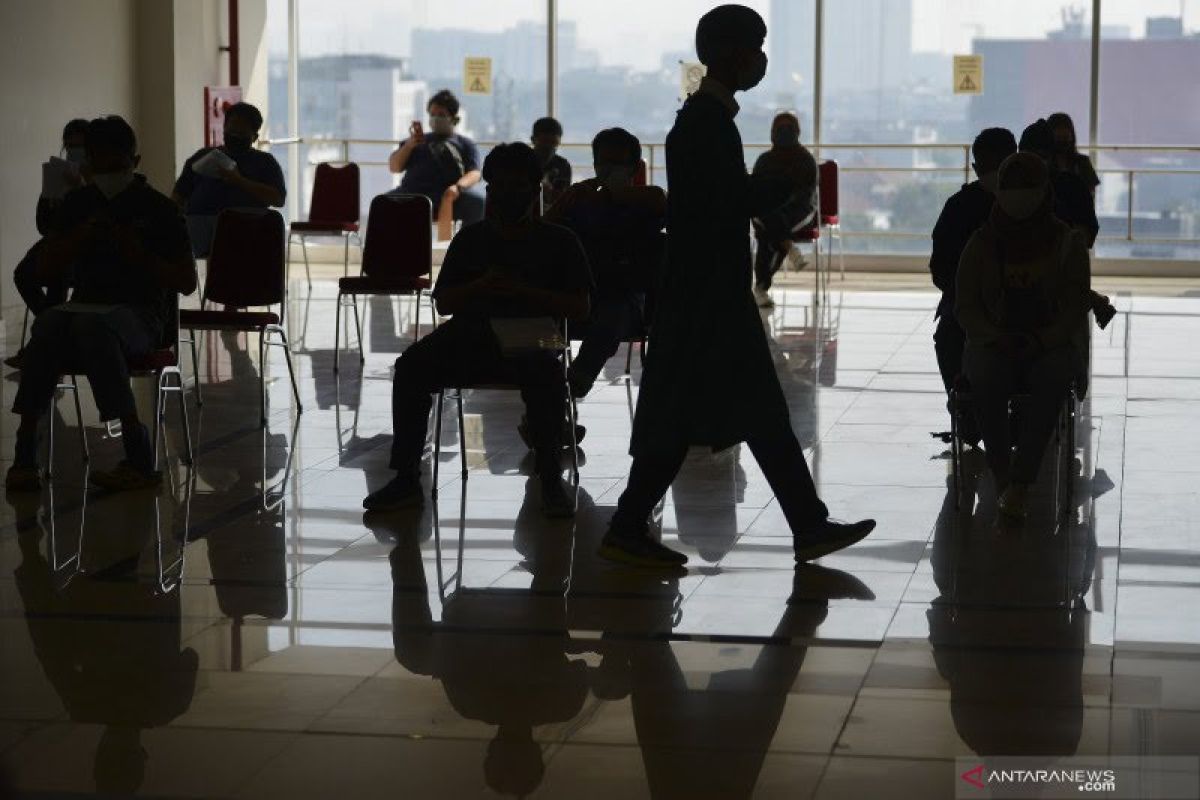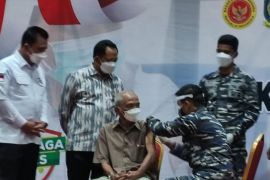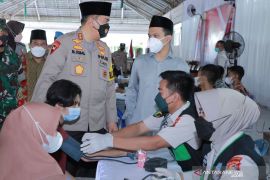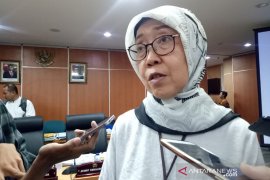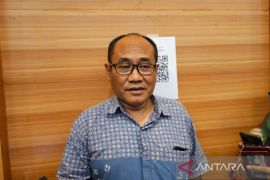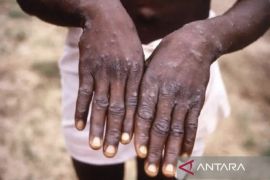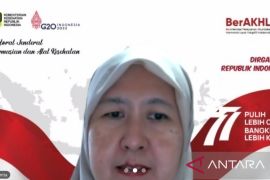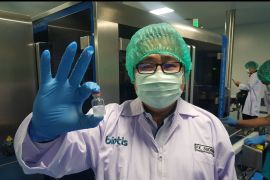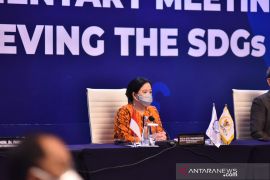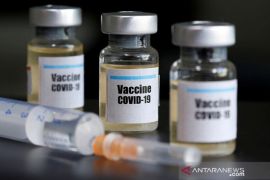Health Minister Budi Gunadi Sadikin has said he believes that people's movement strictly determines the speed of virus mutation since mutations can occur when there is transmission.
He has estimated that the spike in COVID-19 cases would continue as long as the virus cannot be controlled. "Vaccine is one of the most efficient ways to prevent the coronavirus from mutating," he said while participating in a discussion on the Deddy Corbuzier Podcast, uploaded on Wednesday (August 25, 2021).
The condition, he said, is that 70 percent of the population in Indonesia must be fully protected by the vaccine, known as herd immunity.
In the 18 months since the COVID-19 pandemic first hit Indonesia, vaccines from a number of COVID-19 vaccine manufacturers have entered the country, such as Sinovac, Coronavac, and Sinopharm, which use the inactivated virus platform; Pfizer and Moderna, which are based on the mRNA platform; and AstraZeneca and Sputnik-V, which use the Adenovirus platform.
Most of the vaccines are currently available in Indonesia. But what about their efficacy against the new SARS-CoV-2 variant that now exists?
Related news: Indonesia secures 185 million vaccine doses amid scarce supply
The Ministry of Health has just completed research on mRNA-platform vaccines in the United States and Israel, which have injection rates of complete doses of vaccines above 50 percent. The results have shown a drastic decrease in efficacy against the Delta variant.
In the past week, confirmed daily cases in the United States have reached almost 200 thousand as against 250 thousand per day in the previous wave, with the number of patients under treatment reaching 70 percent of the previous wave, the Health Minister noted.
"However, the death rate in the United States is relatively lower although it still shows a trend of increasing cases," Sadikin said.
The same situation has been seen in Israel, which is now approaching its previous peak of around 80 percent, he added.
Different conditions are being experienced in the UK, which is dominantly using the Adenovirus vaccine platform, he said.
"COVID-19 in the UK is also experiencing an increase. But the situation that distinguishes the United States and Israel is the number of patients being treated, and the death rate is more moderate," he added.
Second scenario
Coordinating Minister for Maritime Affairs and Investment Luhut Binsar Pandjaitan, in a webinar recently, said that the Delta variant of COVID-19 makes herd immunity hard to achieve.
"We are facing the Delta variant that does not allow us to achieve herd immunity. This has been formulated by a team of epidemiologists from Gadjah Mada University and Airlangga University," he added.
The problem is that the transmission of the Delta variant is five or eight times faster than the previous variant, he noted. On the other hand, the efficacy of existing vaccines is still around 60 percent on average, he added.
Deputy chairperson of the executive board of the Indonesian Medical Association (PB-IDI), Slamet Budiarto, in a working meeting with Commission IX of the House of Representatives (DPR RI) on Wednesday (August 25, 2021), recommended a third or booster shot for the general public as a second scenario if Indonesia still aims to achieve herd immunity.
The strategy is to provide additional protection to people who have received the full dose of the Sinovac vaccine in January, February, March, and April 2021, he said.
Related news: Over 34.70 million Indonesians fully vaccinated against COVID-19
Based on the PB-IDI analysis, the Sinovac vaccine experiences a decrease in efficacy within six to 12 months, thus, it can potentially slow the country's efforts to achieve herd immunity by the first quarter of 2022, he informed.
If second dose vaccinations in Indonesia currently reach 594,774 per day, it will take seven to eight months to inoculate 208 million and achieve herd immunity, Budiarto said.
The target of vaccinating 70 percent of the population is no longer relevant due to the current development of virus mutations, he added.
According to an Australian scientific journal, vaccination coverage in Indonesia needs to be increased to 86 percent if the vaccine efficacy in Indonesia is around 60-70 percent, he pointed out. Therefore, the number of vaccines available also needs to be increased, he said.
On the same occasion, head of the Drug and Food Control Agency (BPOM), Penny K. Lukito, reported that four private pharmaceutical industries have transferred technology for developing COVID-19 vaccines in Indonesia through PT Bio Farma.
Candidates for the private pharmaceutical industry who will assist in clinical trials of COVID-19 vaccines with various platforms with Bio Farma include PT Baylor Medical College, which is currently developing a subunit protein recombinant-based vaccine that is in the process of optimizing phase 1, 2, and 3 clinical trials in Indonesia, she said.
Another private pharmaceutical industry, PT Etana Biotech, in collaboration with Walfax Abogen, will also produce the first mRNA-based vaccine in Indonesia, which is currently in the third phase of clinical trials, she informed.
Next is PT Biotis Pharmaceutical which will, in collaboration with Airlangga University, develop the Merah Putih vaccine, she said. Currently, the process is in the second phase of preclinical trials, she added.
Another private pharmaceutical industry Genexine Korea is collaborating with PT Kalbe Farma on developing the first DNA platform vaccine in Indonesia, Lukito said.
Coexisting with COVID-19
In addition to pursuing herd immunity, the government has also taken efforts to familiarize the public with complying with health protocols, including the 3Ms, which comprise “menggunakan masker” (mask-wearing), “mencuci tangan” (hand-washing), and “menjaga jarak” (social-distancing), conducting testing, tracing, and treatment (3Ts), as well as reducing the duration of contact.
The spokesperson for COVID-19 vaccinations at the Ministry of Health, Siti Nadia Tarmizi, said that the government has prepared a roadmap to coexist with COVID-19, which aims to balance a healthy life with the resilience of the national economic sector.
The strategy targets a number of policy sectors, including information technology-based health protocols and 3Ts (testing, and tracing, and treatment).
Policies in the technology sector are being realized through the PeduliLindung application, which is currently being used nationally to help maintain the implementation of health protocols in public facilities such as malls, markets, places of worship, tourist attractions, schools, public transportations, and so on, she informed.
Case tracking is being strengthened in a targeted manner through epidemiological testing and tracing activities, she added.
The third sector, said Tarmizi, is treatment or therapeutics for COVID-19 patients in all healthcare facilities, whose capacity continues to be increased.
Of course, all the resources and efforts that the government has used will never be enough to handle the pandemic without the help of citizens because the real nub of the COVID-19 problem lies in people's behavior, she said. The awareness of the public has therefore become crucial to winning the battle against the pandemic, she added.
Related news: Health Minister reveals strategies to coexist with coronavirus
Editor: Suharto
Copyright © ANTARA 2021
